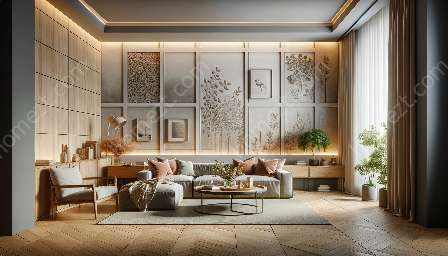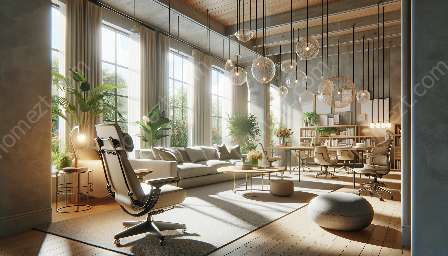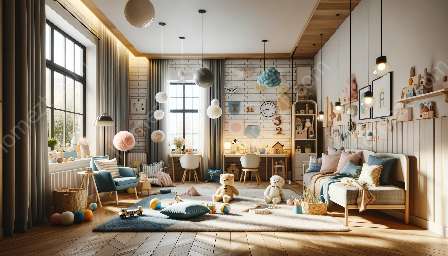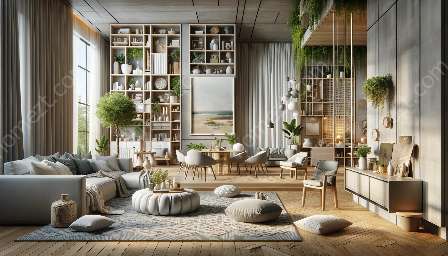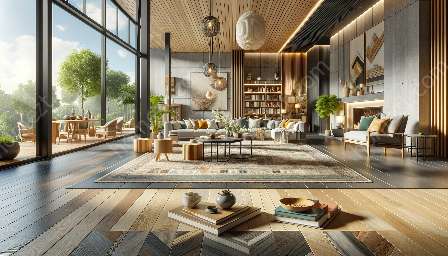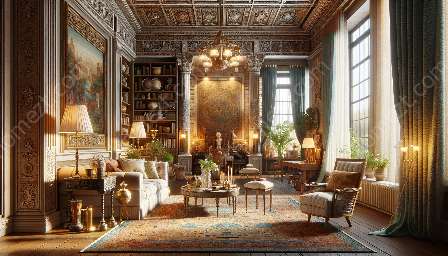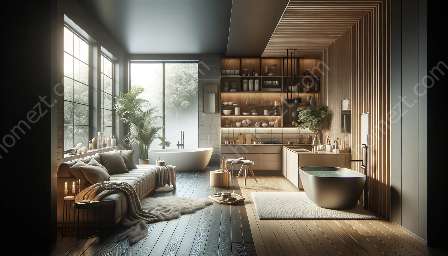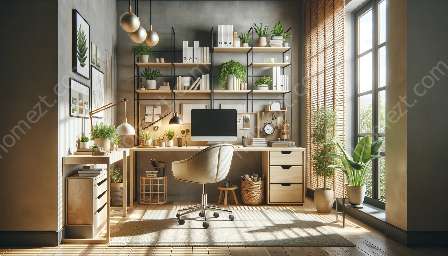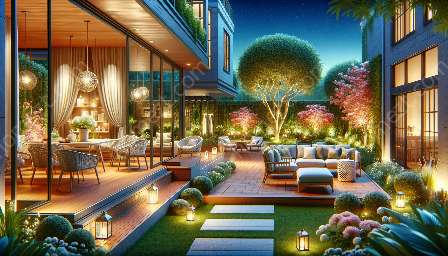Feng Shui principles offer a unique perspective on creating harmonious outdoor living spaces that are in tune with nature and promote a sense of balance and tranquility. When applied to garden design and outdoor living spaces, these principles can enhance the overall aesthetics and energy of your home. Feng Shui practices can also influence decisions in interior design and styling, as the flow of energy in the outdoor environment often affects the interior atmosphere.
The Fundamentals of Feng Shui
Feng Shui is an ancient Chinese practice that focuses on creating a harmonious environment by arranging physical surroundings to promote the flow of positive energy, known as Chi. The fundamental principles of Feng Shui involve balancing the five elements—wood, fire, earth, metal, and water—and creating a harmonious flow of energy throughout the space.
Feng Shui Principles in Outdoor Living Spaces
When applying Feng Shui principles to outdoor living spaces, it's important to consider the layout, positioning of structures, and the selection of plants and materials. Here are some key principles:
- Balance and Harmony: Creating a sense of balance and harmony in the outdoor environment is essential in Feng Shui. This can be achieved by ensuring that there is a balanced distribution of the five elements and a harmonious flow of energy throughout the space.
- Clear Pathways: In Feng Shui, clear pathways allow for the unobstructed flow of energy. When designing outdoor spaces, it's important to ensure that pathways and walkways are clear and free from clutter to facilitate the smooth movement of Chi.
- Natural Elements: Incorporating natural elements such as water features, rocks, and plants can enhance the energy of outdoor living spaces. Water features, in particular, are believed to attract positive energy and symbolize prosperity and abundance.
- Proper Positioning: The placement of outdoor furniture, ornaments, and structures should align with Feng Shui principles to facilitate the optimal flow of energy. This includes considering the orientation of seating areas, the positioning of plants, and the placement of outdoor structures.
Feng Shui in Garden Design
Applying Feng Shui principles to garden design can transform outdoor spaces into tranquil and rejuvenating retreats. The following principles are often considered when creating a Feng Shui garden:
- Yin and Yang: In Feng Shui, achieving a balance of yin and yang energies is important. This can be achieved through the strategic placement of plants and elements to create a sense of harmony and equilibrium.
- Curved Paths and Shapes: Incorporating curved paths and shapes in garden design can help facilitate the smooth flow of energy and create a sense of tranquility. Avoiding sharp angles and straight lines is often recommended to promote a more relaxed and natural energy flow.
- Color Harmony: Feng Shui emphasizes the use of harmonious colors in garden design. The selection of plants and flowers with colors that complement each other and create a balanced visual palette is essential for promoting positive energy.
Feng Shui's Influence on Interior Design and Styling
As the outdoor environment significantly impacts the overall energy of a home, applying Feng Shui principles to outdoor living spaces can influence decisions in interior design and styling. When outdoor spaces are harmoniously designed following Feng Shui principles, it can create a seamless transition between the indoor and outdoor areas, ultimately enhancing the overall atmosphere of the home. This can be achieved through various aspects of interior design:
- Flow of Energy: When outdoor living spaces are aligned with Feng Shui principles, it can positively impact the flow of energy within the home. This can influence interior design decisions such as furniture placement, color schemes, and the selection of decor items to maintain a cohesive and harmonious atmosphere.
- Balanced Color Schemes: The harmonious color palette created in outdoor living spaces through Feng Shui principles can inspire the selection of colors for interior design. Creating a cohesive color scheme that reflects the balance and harmony of the outdoor environment can enhance the overall energy of the home.
- Natural Elements Integration: Bringing natural elements from the outdoor environment into interior spaces, such as through the use of indoor plants, natural materials, and water features, can harmonize the energy flow throughout the home, creating a seamless connection between indoors and outdoors.
Conclusion
By integrating Feng Shui principles into outdoor living spaces and garden design, you can create a harmonious and balanced environment that promotes positive energy flow and enhances the overall aesthetics of your home. Furthermore, the influence of Feng Shui in outdoor living spaces can extend to interior design and styling, providing a holistic approach to creating a harmonious and tranquil atmosphere within your home.

